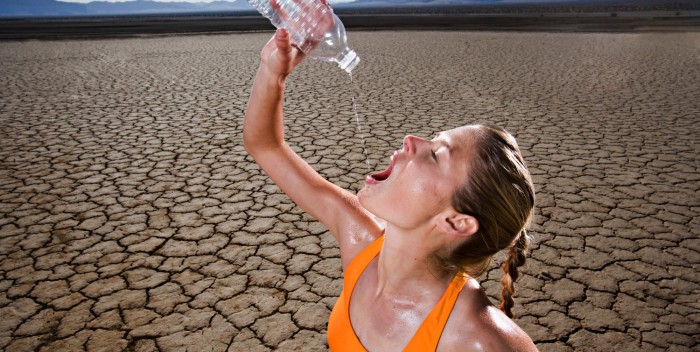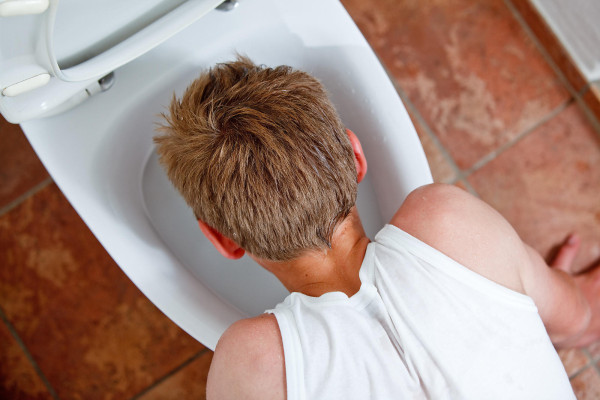Dehydration: causes, consequences, prevention
Our body is more than half water. The loss of even a small part of it leads to dehydration. Serious complications can result if no action is taken to treat dehydration.
Content
Causes of dehydration
Scientists have found that for the normal functioning of the body, a person needs to drink about eight glasses of ordinary clean water a day. If the amount of water you drink is not enough, symptoms of dehydration begin to manifest themselves.
In addition to the small amount of water consumed daily, other factors can lead to dehydration:
- Severe vomiting and diarrhea. This condition leads to a significant loss of fluid in a very short period of time. In this case, dehydration occurs especially quickly in young children. In case of severe diarrhea accompanied by vomiting, it is imperative to go to the hospital.
- Fever. High temperatures cause a lot of fluid loss. And if profuse sweating is also added to the elevated temperature, then dehydration may occur.
- A high degree of perspiration is observed with intense physical exertion. This also leads to a little dehydration. This is why you should take a bottle of water with you when you go to workout.
- Frequent urination can also lead to dehydration. It is observed in some diseases, such as diabetes. In the case of this disease, a strong feeling of thirst is added to the frequent urination.
- Certain medications and alcohol can sometimes lead to dehydration.
Symptoms of dehydration
If you are very thirsty, it means that your body has been in a state of dehydration for quite a long time. It is more correct to assess the level of dehydration by the amount and state of urine. When dehydrated, urine is dark in color. Another symptom of dehydration is excessive sweating due to fever or strenuous exercise.
Then the person has circles dark in color around the eyes, it becomes lethargic and lethargic. Further, changes begin on the part of the nervous system - a person has confusion of consciousness. When dehydrated, the patient experiences weakness, may lose consciousness. The skin suffers - they become dry and inelastic.
Danger of dehydration
Water is the main condition for the health and youth of the human body. The less you drink pure water, the sooner the aging process takes place, the closer you are to your death. There is even an opinion that at the time of death, a person still continues to lose water. Figuratively speaking, the loss of only a couple of percent of the fluid from the body separates from the death of a person.
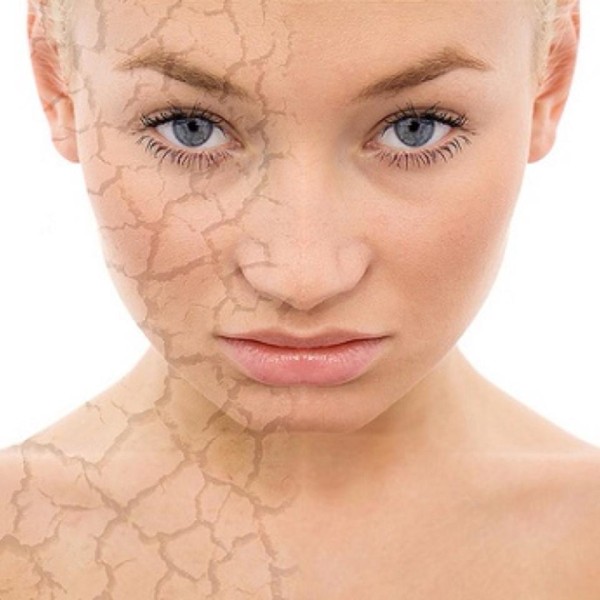 From this we can conclude that a healthy body should be fully saturated with moisture. Therefore, if you intend to stay young and healthy as long as possible, you should not wait for the first warning signs of dehydration. In addition, a glass of water drunk on time also protects us from the signs of premature aging - early wrinkles.
From this we can conclude that a healthy body should be fully saturated with moisture. Therefore, if you intend to stay young and healthy as long as possible, you should not wait for the first warning signs of dehydration. In addition, a glass of water drunk on time also protects us from the signs of premature aging - early wrinkles.
Effects of dehydration
First of all, the brain suffers from a lack of water. After all, the loss of even a small part of water leads to irreversible consequences for the brain. To prevent this, fluid begins to be pumped out of other organs. At the same time, our body first tries to replenish the lack of moisture, taking it from the cells, then the water leaves the intercellular space and from the blood. Dehydration of the brain leads to the penetration of dangerous substances that cause multiple sclerosis, Parkinson's disease and other equally serious ailments.
 A decrease in the amount of fluid leads to thickening of the blood, which can further cause atherosclerosis. The lack of moisture also damages the immune defense. This leads to the development of chronic diseases of various kinds. Not to mention the lack of moisture causes early aging.
A decrease in the amount of fluid leads to thickening of the blood, which can further cause atherosclerosis. The lack of moisture also damages the immune defense. This leads to the development of chronic diseases of various kinds. Not to mention the lack of moisture causes early aging.
Dehydration treatment
To get rid of dehydration, it is necessary to restore the water balance in the body as soon as possible. Severe dehydration is characterized by extremely low body fluids. This condition leads to changes in the internal organs. With such a severe degree of dehydration, it is imperative to call an ambulance and place the person in a hospital.
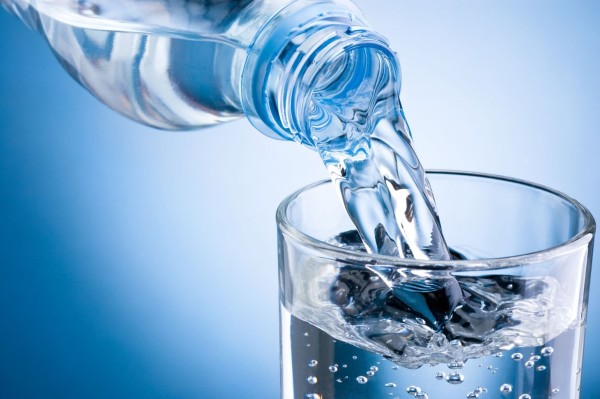 Mild to moderate dehydration can be treated at home. For this, the patient must be placed in a cool and well-ventilated room on a flat surface. You need to give a person a lot of fluids. It can be plain or mineral water, a drink with glucose, frozen fruit the juice... In this case, the liquid should be drunk in small sips and slowly. To speed up the process of restoring water balance, you can give the patient a special drug, for example, "Regidron" or the like.
Mild to moderate dehydration can be treated at home. For this, the patient must be placed in a cool and well-ventilated room on a flat surface. You need to give a person a lot of fluids. It can be plain or mineral water, a drink with glucose, frozen fruit the juice... In this case, the liquid should be drunk in small sips and slowly. To speed up the process of restoring water balance, you can give the patient a special drug, for example, "Regidron" or the like.
It is important to remember to see a doctor as soon as possible if dehydration occurs in the following cases:
- If it is a child under ten years of age, especially a baby.
- If the patient is an adult of retirement age.
- If the patient suffers from severe diarrhea and vomiting occurs.
- If the patient does not urinate for more than 12 hours.
- If rises heat about 40 degrees.
- If the patient loses consciousness, they develop convulsions or epileptic seizures.
Prevention of dehydration
To avoid even mild dehydration, it is important to constantly monitor the amount of fluid you drink. Do not substitute other drinks for the water your body needs. They won't do you any good. Keep track of how much water your small child drinks.
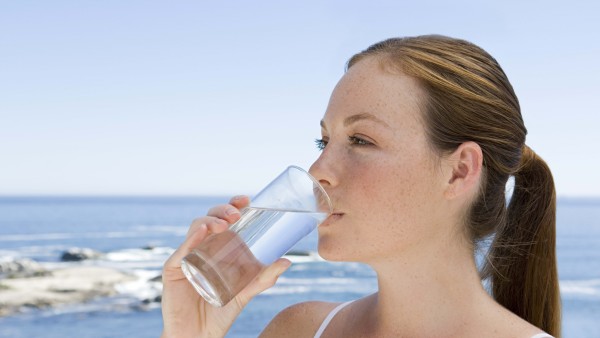 Drink plenty of water during hot seasons and high temperatures. When vomiting and diarrhea, be sure to drink water in small sips, but often. If vomiting and diarrhea are observed in the baby, in no case stop feeding the baby. He must receive a sufficient volume of fluid in any case. You can switch to a gentle feeding regimen only with the permission of your doctor. Moreover, with the development of an infectious disease, hunger has absolutely no meaning.
Drink plenty of water during hot seasons and high temperatures. When vomiting and diarrhea, be sure to drink water in small sips, but often. If vomiting and diarrhea are observed in the baby, in no case stop feeding the baby. He must receive a sufficient volume of fluid in any case. You can switch to a gentle feeding regimen only with the permission of your doctor. Moreover, with the development of an infectious disease, hunger has absolutely no meaning.
